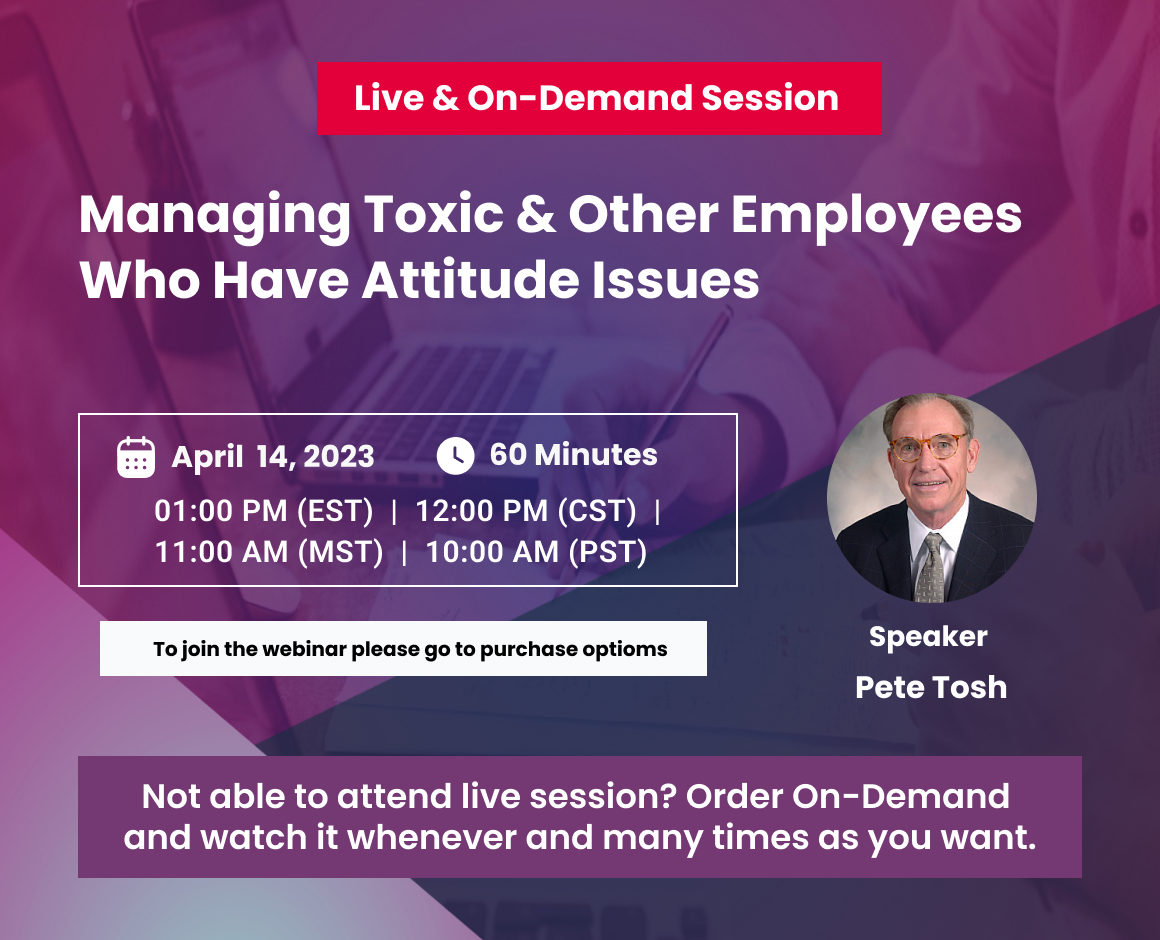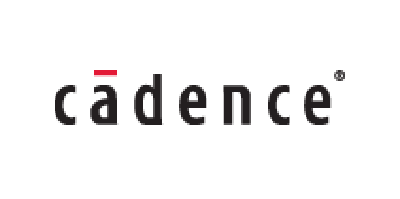Clever toxic employees:
- Utilize their technical expertise to intimidate and manipulate
- Know who to flatter and who they can abuse
- Turn their toxicity on and off depending on the impression they want to make
Unfortunately, organizations can work against themselves and even promote toxicity by:
- Restructuring his/her job to accommodate a toxic employee
- Tolerating toxic employees who have valued expertise
- Not assertively seeking employee feedback as to whether there is toxic behavior in the workplace
- Not communicating to all employees the specific interpersonal behaviors that will not be tolerated – with the associated consequences
Managers sometimes attempt to fix this type of problem by addressing a toxic employee's attitude. And while a toxic employee's attitude certainly affects his/her behavior, managers usually find that controlling an employee's attitude is next to impossible.
Managers can be much more effective by:
- Discuss the specific behaviors that are negatively impacting other employees and/or the organization
- Using positive and negative consequences to influence that behavior
Areas Covered
I. Human and Financial Costs Resulting from Toxic Employees, Toxic Employees create:
- Chaos and unnecessary complexity
- Overt damage
- Covert damage
- Strife, stress and emotional damage
- Productivity, quality and financial losses
II. The A, B, C’s Related to Toxic Employees
- Employee attitudes
- Employee behaviors
- Consequences that managers can exert
III. The Psyche of a Toxic Employee
- Frequently seen toxic behaviors
- Utilize ‘star status’ and technical expertise to intimidate and manipulate
- Chameleon, who knows who to flatter and who he/she can abuse
- Turn their toxicity on and off depending on the impression they want to make
- Three common forms of toxic behavior
IV. Common Reactions to Toxic Employees That Frequently Don’t Work
- Restructuring his/her job to accommodate the toxic employee
- Tolerating toxic employees who bring rare expertise or experience
- Not assertively seeking feedback from employees as to whether there is toxic behavior in the workplace
- Not communicating to all employees the specific behaviors that will not be tolerated – with associated consequences
V. Effective Approaches for Addressing and Preventing Toxicity
- Organization-wide strategies:
- Making positive interpersonal behavior an organizational value
- Evaluating interpersonal behavior as a part of the performance appraisal system
- Training leaders in how to address toxic behavior
- Using behavioral-based interview questions to screen toxic applicants
- Exit interviewing to identify any toxic behavior in the workplace
- Departmental and team strategies:
- Defining appropriate interpersonal interactions with behavior-specific descriptions and standards
- Using team discussions and role plays to clarify the application of the behavioral descriptions and standards
- Utilizing a 360-degree feedback process to assess the work environment
- One-on-one strategies:
- Stating explicitly that the behavior is not acceptable and why
- Describing both the unacceptable and acceptable behavior
- Asking the employee to commit to and describe how he/she will change his/her behavior
- Frequent, targeted counseling feedback
- Executive coaches
- Progressive discipline
- Termination
But even terminations are not a cure-all because the:
- Toxic-enabling people and organizational culture tendencies may remain
- Employees may still be resentful of the way they were treated by the employee and the time it took the organization to react
- Expertise and experience of the toxic employee are lost
Why Should You Attend
Most organizations have employees who on occasion:
- Complain and gossip excessively
- Use inappropriate language
- Are mildly insubordinate
But Toxic Employees have interpersonal styles that demonstrate a pattern of counter-productive work behaviors. Emotionally Intelligent employees are aware of their feelings and those of others, exhibit a pattern of appropriate self-management.
The toxic employee problem is surprisingly prevalent, with research showing:
- 95% of employees have and 64% are currently working with a toxic employee
- 50% of employees have thought of quitting and 12% did because of a toxic employee
- 25% of employees have reduced their work effort due to a toxic employee
- 20% of employees feel they are a target weekly and 10% of employees see toxic behavior daily
- Toxic employees cause significant overt, covert, people-related and financial damage, with their visible
behavior just being the tip of the iceberg. For example, in one organization, the day a former employee left the organization is considered one of their annual holidays
























